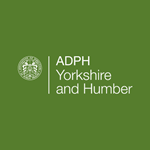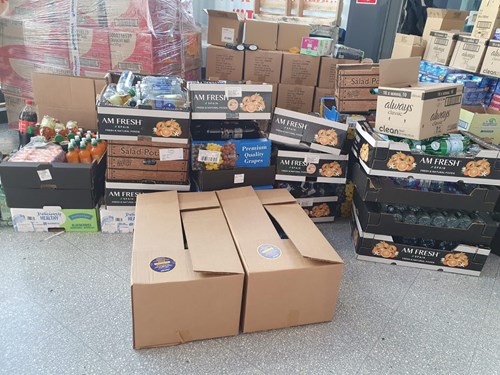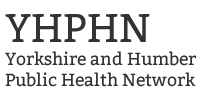
Sheffield City Council’s approach to tobacco control during the COVID-19 crisis
06 May 2020

During times where we are not in a state of national emergency many of us are working hard to address the other epidemic which causes immense harm to individuals, families and communities throughout England and the world on a daily basis – the smoking epidemic.
Smoking kills, impoverishes, and ratchets up inequalities. Worldwide smoking has a devastating effect and kills 8 million people primarily from cancer, CVD and respiratory diseases. In England 78,000 die each year from smoking and in Sheffield we see around 16 deaths a week this equates to around 832 preventable and tragic deaths annually¹. Furthermore for every person who dies from smoking another 20 are living with smoking related diseases.
Reducing smoking and associated inequalities it causes, is a national and local priority. The government has committed to achieving a smokefree generation by 2030². We know we have our work cut out for us in achieving this ambitious target.
Currently in England only 30% of smokers make at least one quit attempt every year. At this rate, we will get to 5% smoking prevalence by 2043. If 50% of smokers made an annual quit attempt, we could get to 5% smoking prevalence by 2029³.
Quitting smoking is the best thing any smoker can do to improve their health. Smokers are more likely to succeed by switching to alternative sources of nicotine, for example nicotine patches, gum or e-cigarettes, It’s smoking that kills you not nicotine, which is much less harmful than smoking. In addition your chances of success increase three fold if you access support from specialist stop smoking services.
Like the COVID-19 epidemic we know if we tackle smoking effectively we will save thousands of lives and protect the NHS and in addition we will:
● lift thousands of households out of poverty
● increase local productivity and economic prosperity
● protect children from harm
● reduce inequalities
● improve quality of life in your community
But why #QuitforCovid specifically?
The Chief Medical Officer and Health Secretary both recently reinforced that smokers are likely to be at increased risk from COVID-19 and this would be a good time to quit.
A wide range of experts including Prof John Britton, Dr Sanjay Aggrawal, Dr Nick Hopkinson, Prof Jamie Brown, Prof Ann McNeill and Prof Linda Bauld have reviewed the emerging evidence and agreed with the following position:
Early figures from China suggest that the percentage of smokers attending hospital for COVID-19 is less than we might have expected.⁴ᶦ However, these data are uncertain and rely on people being able to report on their smoking and healthcare professionals having the time to record it.⁵ᶦᶦ In truth, people may have been too unwell and staff too busy.
New figures, taken from the UK arm of YouGov’s international Covid Tracker⁶, are published today (4th May) as evidence emerges that smokers in the UK are at an increased risk of developing symptoms of COVID-19⁷ (fever and a persistent cough).⁸ᶦᶦᶦ There is also evidence that smokers in hospital who have coronavirus are at a higher risk than non-smokers of severe illness and death.⁹ᶦᵛ
Furthermore, there are many other reasons to quit for Covid, as smokers are also much more at risk of range of serious health problems requiring them to need treatment from the NHS, quitting reduces both the likelihood of disease and hospital admission.
The reports of a trial in France¹⁰ to see whether nicotine patches can help prevent or help lessen symptoms of COVID-19 should not put smokers off trying to quit, but encourage them to use alternative sources of nicotine to help them stay quit.
Smoking damages the lungs and weakens the immune system making it harder to fight of infections. This makes it more likely that smokers will get complications and take longer to recover from illnesses. Overall, smokers are five times as likely to get influenza and twice as likely to get pneumonia than non-smokers.
The evidence on the impact of COVID on smokers needs further research, but the evidence to date seems to show that if smokers get COVID, the outcomes are likely to be worse than for non-smokers.¹¹
There is very clear evidence that quitting smoking rapidly reduces your risk of sudden episodes of heart and lung disease and improves the health of your baby if you are pregnant. It is more important than ever for smokers to protect their health from these severe smoking related events.
Smoking cessation remains a public health priority and high-quality smoking cessation advice and effective communications to encourage population level quits should form part of public health efforts during this pandemic.
The Sheffield Tobacco Control Strategy
WHO outline a toolbox of interventions that when combined effectively reduce smoking prevalence. The Sheffield strategy is based on a comprehensive needs assessment, and the WHO MPOWER model. There are six strands and our approach is based on these:
● stopping the promotion of tobacco;
● making tobacco less affordable;
● effective regulation of tobacco products;
● helping tobacco users to quit;
● reducing exposure to second-hand smoke;
● effective communications for tobacco control.
The communications and marketing strand and smoking cessations services for adults and pregnant women are key elements of the comprehensive Sheffield Tobacco Control Strategy which aims to achieve a Smokefree Sheffield and brings together, all city partners to drive down smoking prevalence.
#QuitforCovid Campaign SmokefreeSheffield Approach
Smokefree Sheffield have got behind the campaign from Breathe 2025, Fresh and ASH calling on smokers to #QuitforCovid, which officially launched on the 1st April. The initiative aims to educate smokers on the increased risks to themselves and their family from COVID-19 and encourage them to take the important step of quitting smoking.
What did we do?
Following the Government and PHE advice in March 17th 2020 on social distancing to reduce transmission of Coronavirus, the Sheffield Stop Smoking Service moved to supporting smokers via online and telephone support with electronic e-vouchers for NRT and Champix like many other areas across the country.
We informed all tobacco board partners including the CCG, primary care, NHS hospitals, the VCF sector, health and social care, Sheffield universities, of the changes to the service and also asked partners to get behind the #QuitforCovid campaign.
We updated the Smokefree Sheffield Website with information on smoking and COVID, the emerging evidence on increased risks and highlighted the stop smoking support available via Yorkshire Smokefree Sheffield. Making information more prominent on the site and easily accessible.
Smokefree Sheffield created specific #QuitforCovid social media messaging in collaboration with Sheffield City Council Communication’s team.
All partners and communication leads were asked to share, tweet and like #QuitforCovid posts from Smokefree Sheffield and tag in SCC. So we could maximize our reach locally and nationally. Below are the handles:
Search Smokefree Sheffield and use @smokefreesheffield to tag us in posts
Search Our Sheffield and use @oursheff to tag us in posts
A press release was developed to inform the media and the public about the rationale and importance of the campaign and what support is available. The press release was sent out on the 1st of April to mark the launch and was also put out on the council’s newsroom and distributed via the councils COVID19 mailing list (around 55,000 staff and residents access this). The press release was picked up by our local newspaper Sheffield Star and shared on social media by them.
A SCC managers briefing note was developed which was circulated to all managers across the council. The aim of this brief was to support managers with information to use with their staff. This outlined the actions they should take to support staff who are smokers.
SCC COVID pages have being updated with information on Smokefree and support available in the city. All partners have been asked to link their internal/external pages to these where possible and asked to promote to their staff and inform them they can sign up for daily updates from the council which will include communications on #QuitforCovid. https://www.sheffield.gov.uk/home/your-city-council/coronavirus
The Twitter Quit Clinics’ being run between 7.30 and 8.30pm, where people can put their questions to leading smoking cessation experts Louise Ross and Maggie Milne were promoted to all partners via e-mail. More information about this can be found at www.todayistheday.co.uk.
A Sheffield smoking and COVID leaflet was developed and is being distributed via foodbanks and community workers who are shopping for those who are shielding and vulnerable.
QuitforCovid stickers are being placed on all food parcels in the city to promote the risk to smokers but also the support available in the city. These have been in place since Friday. 17th April 2020 and the various community and council food parcel deliveries. Around 25-30 parcels are being delivered daily.

Covid quitters from Sheffield were identified and asked to share their stories in the national media in collaboration with ASH to communicate hope and inspire other smokers to quit.
Outcomes achieved so far?
Service referrals and demand
In March 2020 the Sheffield Stop Smoking Service saw an increase of 53% more smokers accessing the service for quit support than the previous year. During April the demand for the service has continued and we have had to increase the number of telephone clinics in response to this demand.
Smokefree Sheffield Website Traffic
The graph below outlines a daily overview of Smokefree Sheffield website visitors from 1st March – 9th of April

There was a big spike on the 1st April when we went live with the website updates, social media, press release and communications via SCC channels. Around 50% of these visitors came from ’email’ and 20% came from social media.
There we’re 976 visitors on the website from 1st April – 9th April, that’s a 205.96% increase from the week before. From a total of 1,524 page views, 876 (57%) were of the Quit for Covid landing page during this time.
In total the Smokefree Sheffield website has had over 1,878 people visit during April, seeking information on smoking, with the most viewed page being our ‘Quit for Covid’ page. Compared to the same time last year this is 130% increase in visitors to the site. The average length of time on the QuitforCovid page is 3 mins. This shows that smokers have been receptive to and have engaged with our QuitforCovid campaign in Sheffield.
The local cost of the campaign was approx. £4000 and so far we have reached nearly 45,000 people and had over 1,700 engagements on social media.
Further evidence of smoker’s engagement with #QuitforCovid
New figures, taken from the UK arm of YouGov’s international Covid Tracker show that:
Nearly 1 in 10 smokers in England has tried to quit because of COVID – and over 1/3 have cut down. This equates to around 550,000 smokers in England trying to quit¹² and 2.4 million cutting down the amount they smoke because of concerns over COVID-19¹³.
The Association of Directors of Public Health has now become the latest organisation to support calls for smokers to quit for COVID as the #QuitforCovid campaign gains traction nationwide.
This is a campaign that all local authorities can get behind using the expertise of their public health and communication teams to roll out the national toolkit and resources. This will save lives and will protect the NHS now and in the months and years to come.
If there is one positive outcome to arise out of the COVID-19 pandemic a reduction in smoking will have significant future public health benefit.
What is next for Sheffield? Phase 2: May–July 2020
● A Covid19 smoking and pregnancy leaflet is being developed to support Midwifery
● Video featuring Director of Public Health, Greg Fell in Sheffield highlighting importance of quitting for Covid.
● TV and radio adverts to promote quitting and the support available locally
● Scoping plans to see if we are able to write to/ text smokers on GP registers to highlight the local support available to help them quit. This may be done by text also.
● Exploring options to see if we are able to fund e-cigarettes for vulnerable groups including the homeless and rough sleepers.
● Regular updates for tobacco board partners
● Planned further press releases to promote the work we are doing with the aim of highlighting the service is open for business and normalising quitting.
● Further communications planned in GP and Nurse Bulletins via the Sheffield CCG communications team. Also will use this as an opportunity to raise awareness of the new rapid guidance from NICE on COPD which strongly urges smokers to quit who have https://www.nice.org.uk/guidance/ng168/chapter/2-Treatment-and-care-planning#smoking-cessation
Greg Fell, Director of Public Health Sheffield, Sheffield City Council
Sarah Hepworth, Health Improvement Principal, Tobacco Control Lead, Sheffield City Council
Maggie Milne, Stop Smoking Service Manager, Yorkshire Smokefree Sheffield
References
³ https://ash.org.uk/wp-content/uploads/2019/06/The-End-of-Smoking_final.pdf
⁴ ᶦ Farsalinos K, Barbouni A, Niaura R. Smoking, vaping and hospitalization for COVID-19. Qeios. doi:10.32388/Z69O8A.13.
⁵ ᶦᶦ Simmonds D., Brown J., Shahab L., Perski O. Smoking and COVID-19: Rapid evidence review for the Royal College of Physicians, London (UK). Qeios. doi:10.32388/VGJCUN.
⁶For more information: https://yougov.co.uk/topics/international/articles-reports/2020/03/17/YouGov-international-COVID-19-tracker
⁷COVID Symptoms Tracker. Smoking and COVID-19. Online. Accessed April 2020.
⁸ ᶦᶦᶦ COVID Symptoms Tracker. Smoking and COVID-19. Online. Accessed April 2020.
⁹ ᶦᵛ Vardavas C. I., Nikitara K. COVID-19 and smoking: A systematic review of the evidence. Tobacco Induced Diseases. 2020;18(March):20. doi:10.18332/tid/119324.
¹⁰ https://www.qeios.com/read/FXGQSB.2
¹¹ Royal College of Physicians. Hiding in Plain Sight. 2018.
¹² Calculations are by Dr Leonie Brose at National Addictions Centre, King’s College London. The proportions in the YouGov survey are applied to the most recent available ONS population estimates for UK, England and Wales, Scotland and Northern Ireland: https://www.ons.gov.uk/peoplepopulationandcommunity/populationandmigration/populationestimates/bulletins/annualmidyearpopulationestimates/mid2018
¹³ Additional analysis by Dr Leonie Brose, National Addictions Centre, King’s College London
